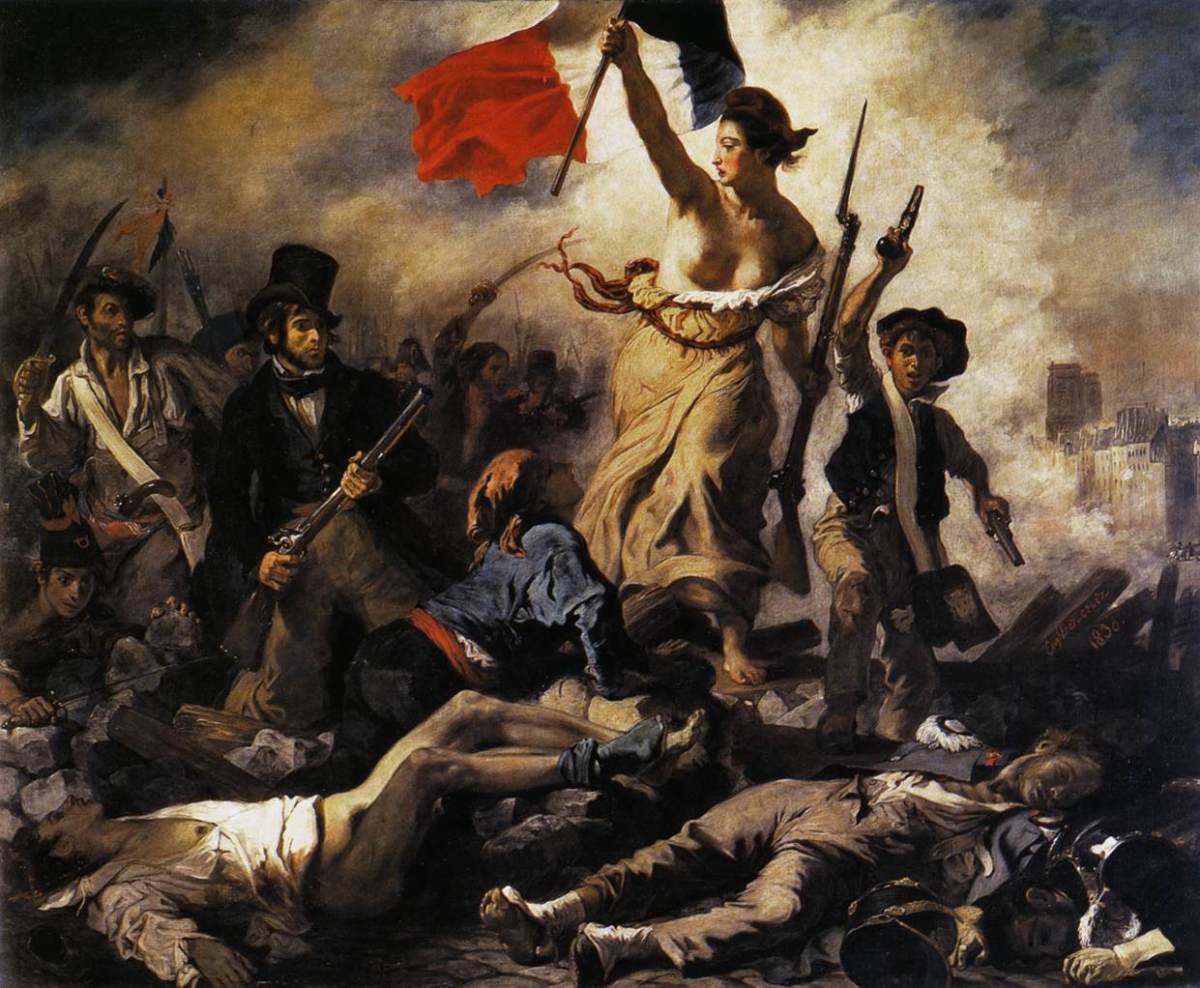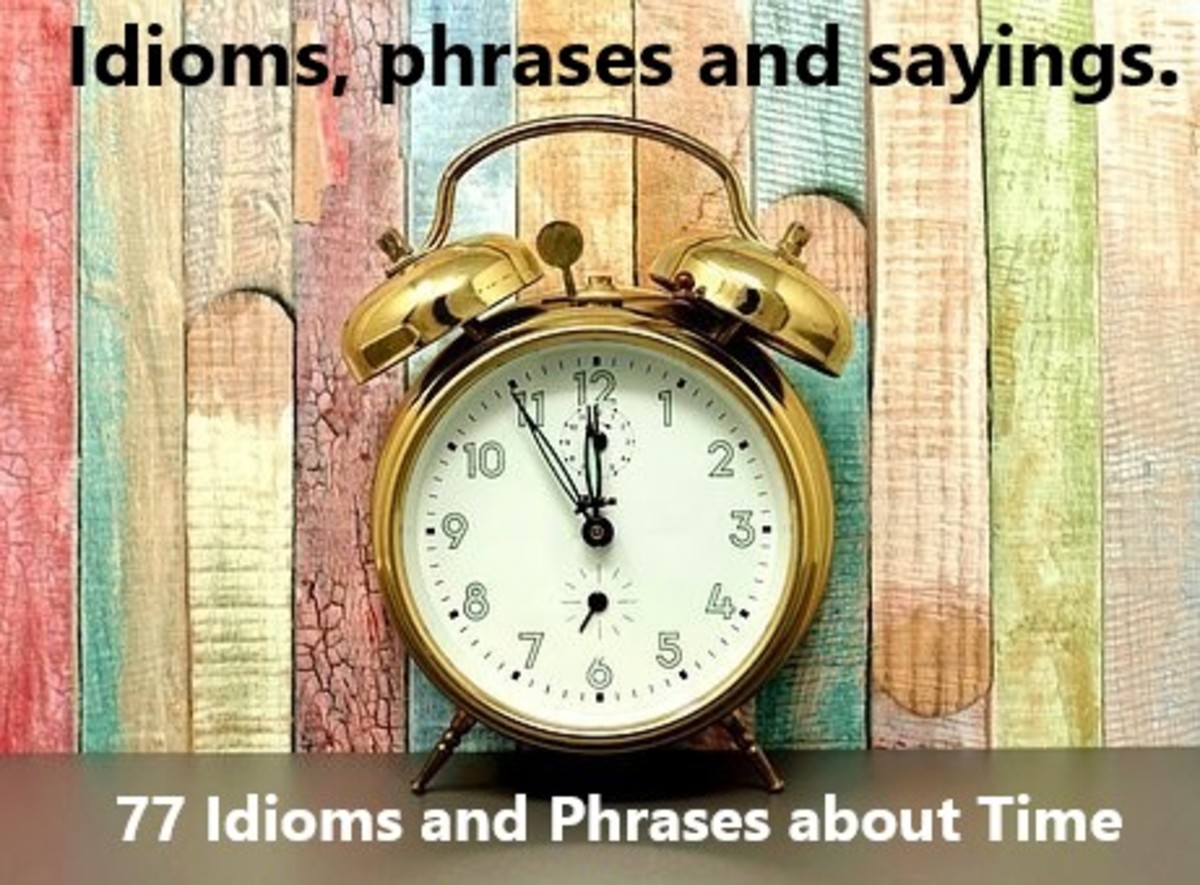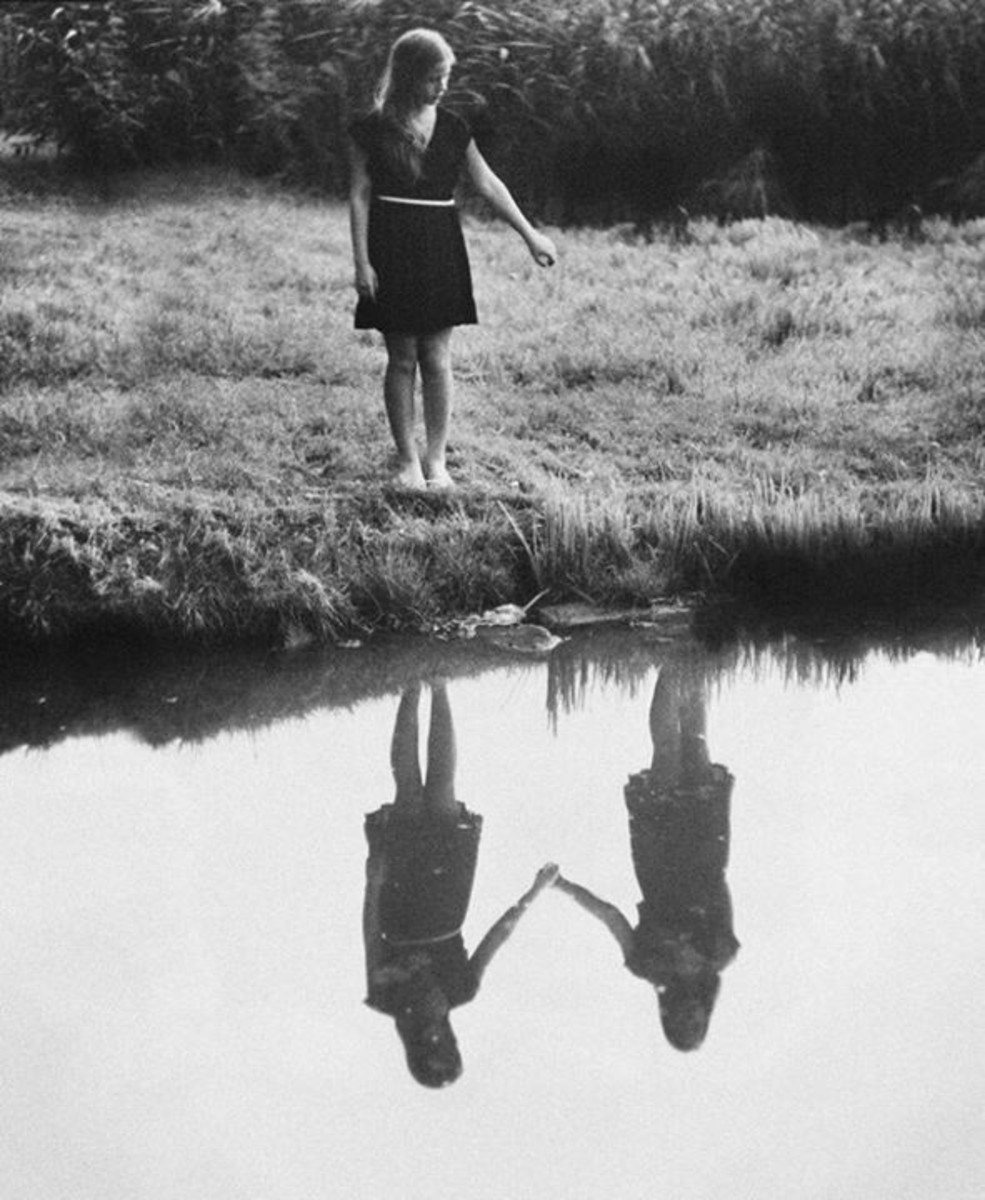Girl's Own Annual
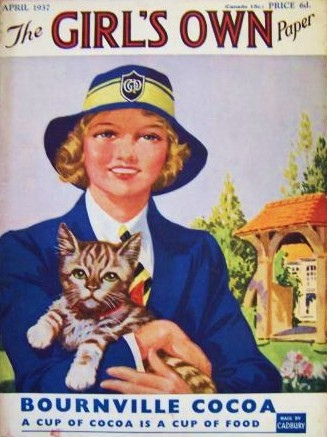
I say, up the hockey sticks girls. Remember chums, we're all in this together!
Following the Religious Tract Society's successful publication of Boy's Own Annual in 1879, the Society decided to launch into a girls version of Boy's Own the following year. After all, girls too had characters that needed to be shaped and their young, feminine minds required appropriate material to absorb. The weeklys included a variety of stories, educational articles, adventure tales, 'morally improving' tracts, a correspondents page(answers to letters), coloured plates, poetry and music sheets.
Like the Boy's Own magazine, weekly issues would be bound together to form an annual and according to historian E. Honor Ward, "The G.O.P. was an important and positive influence on generations of
girls and women, and a vital outlet for women's writing and ideas for
more than three-quarters of a century". In a male-dominated society, women appreciated having something of their own to peruse and contribute to, even if it did perhaps at least partly reinforce those cultural stereo-types that had kept them in the shadows.
For a brief period in 1929 Girl's Own Paper became Girls Own Paper and Woman's Magazine, but soon after, in 1930, the Women's Magazine became an entity in its own right. In the 1940s the title of Girl's Own was changed to Girl's Own Paper and Heiress. and in 1951 it became Heiress incorporating the Girl's Own Paper.
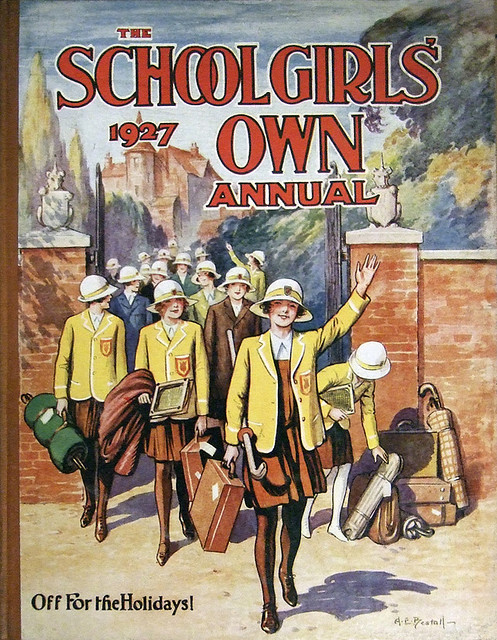
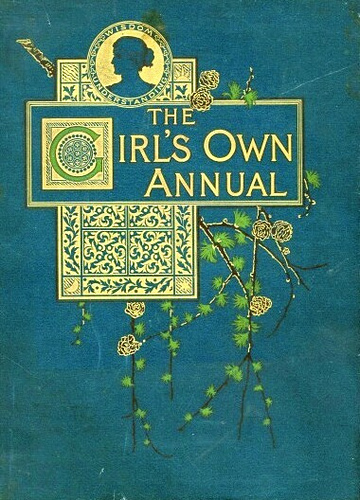
What was the Religious Tract Society?
An 18th century Evangelical Revival, also known as The Great Awakening signified a revival of religious enthusiasm that swept throughout the American colonies and the British Isles and spawned a number of earnest organisations promoting clean living and Christian values through the dissemination of literature.
One of these was The Religious Tract Society founded in 1799, which became a major publisher - first of evangalical tracts and eventually moving on to books, periodicals and annuals. The Society was particularly concerned with reaching the most vulnerable members of society....women, children and the poor. In !935 the Society merged with The Christian Literature Society for India and Africa to become The United Society for Christian Literature.
St Trinians
The Girl's Own image of the stalwart, sensible British schoolgirl was disgracefully shattered in a popular series of films in the 1950s. Set in St. Trinians, a fictional private school, these voluptuous school girls were sexed up monsters who flirted, gambled and generally misbehaved.
All this was achieved under the approving eye of the suspect staff, which included a dowdy but morally flexible headmistress and her bookmaker brother. Both roles were played by British actor Alistair Sims and Sim's real life son, George Cole featured as a conniving cockney go -between.Based on the works of cartoonist Ronald Searle,the St Trinians series was produced and directed by Frank Launder and Sidney Gilliat.
St Trinians..Girl's will be Girls!
The Daring Book for Girls
As a response to The Dangerous Book for Boys, which capitalised on the nostalgic appeal of the Boy's Own annuals, creators Andrew J Buchanan and Miriam Peskowitz brought out the equally anachronistic The Daring Book for Girls in 2007. Such books are designed to wrench kids away from technology and out into the world of r/life experience and adventure and their success suggests that, as the publishers claim, they've "hit a public nerve".
Described as a "how-to manual for enthusiastic, unfettered adventure", the book includes such worthile titbits and activities as how to pitch a tent, get horseback riding tips, set up a lemonade stand or how to tie a hitch knot and make a labryinth. Also include are stories about heroic female role models and
The Australian edition of the book ignited a small controversy on 2008, when it included a section on how to play the didgeridoo. According to aboriginal cultural protocols, females are banned from touching or playing the instrument. The publishers responded with an apology and an intent to remove the section: "HarperCollins will replace this item when the book is reprinted as clearly we had no intention to offend." . Somehow that meek aquiescence doesn't seem very daring.
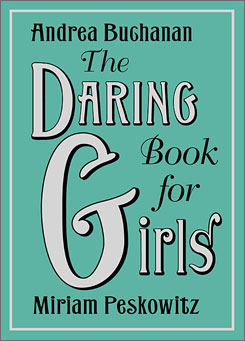
LINKS
- Boy's Own Annual
There was a time, in the dark receding past, when chest hair was still in vogue and the male Brazilian an undreamt of, impossible horrror. It was a time when concepts like valour, patriotism, pride in Empire,... - Old-fashioned Games for Kids
Oh I know in these days of whizz bang crackle boom wow shebang high tech wizardry, old-fashioned no-tech games probably seem incredibly lame to savvy 21st Century children. After all they've got mobiles,... - The Plastic Brain
If the science writers are to be believed, a hot topic in the field of neuroscience at the moment is the brains incredible plasticity--that is, its ability to grow, adapt and re-map itself, depending on the...


